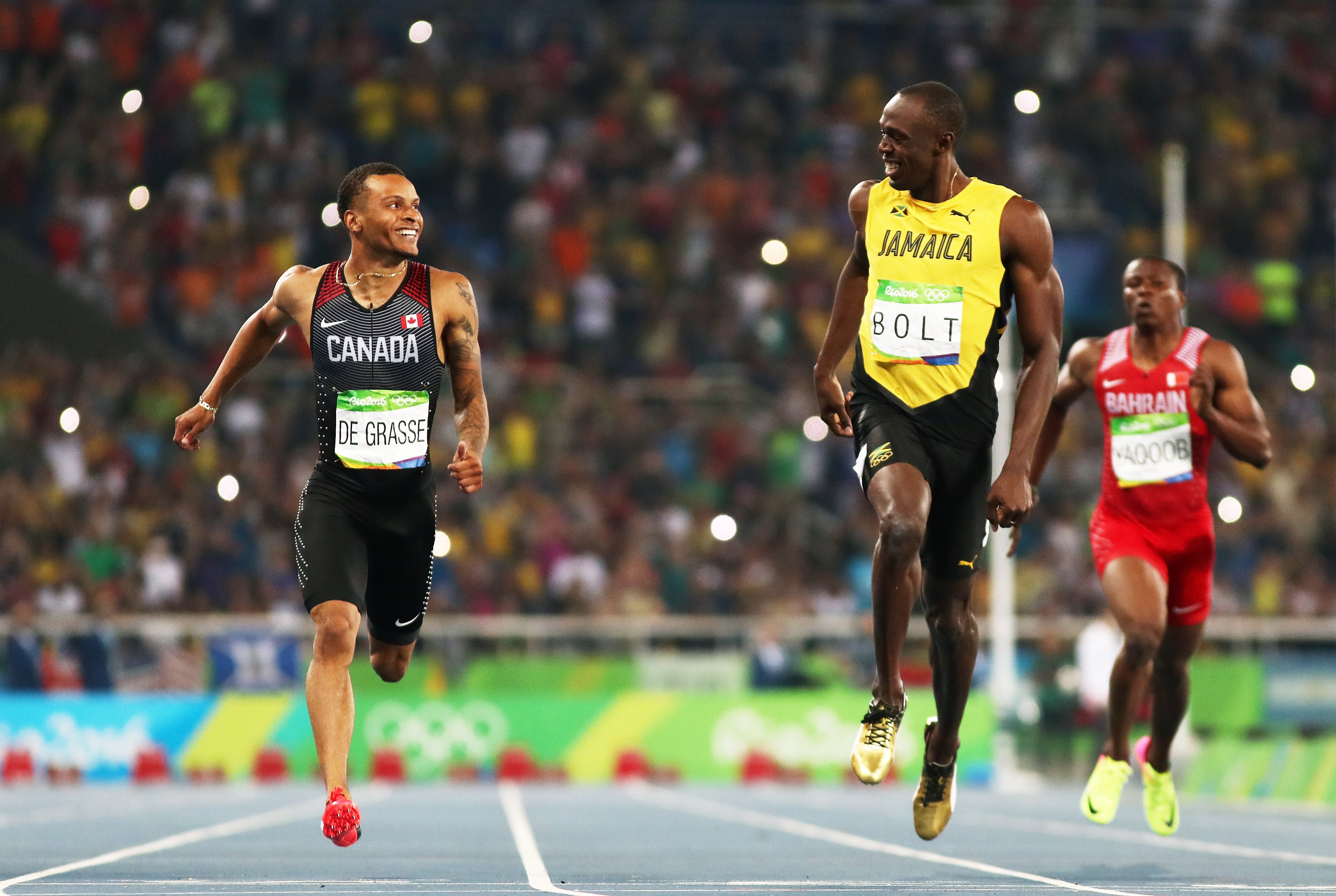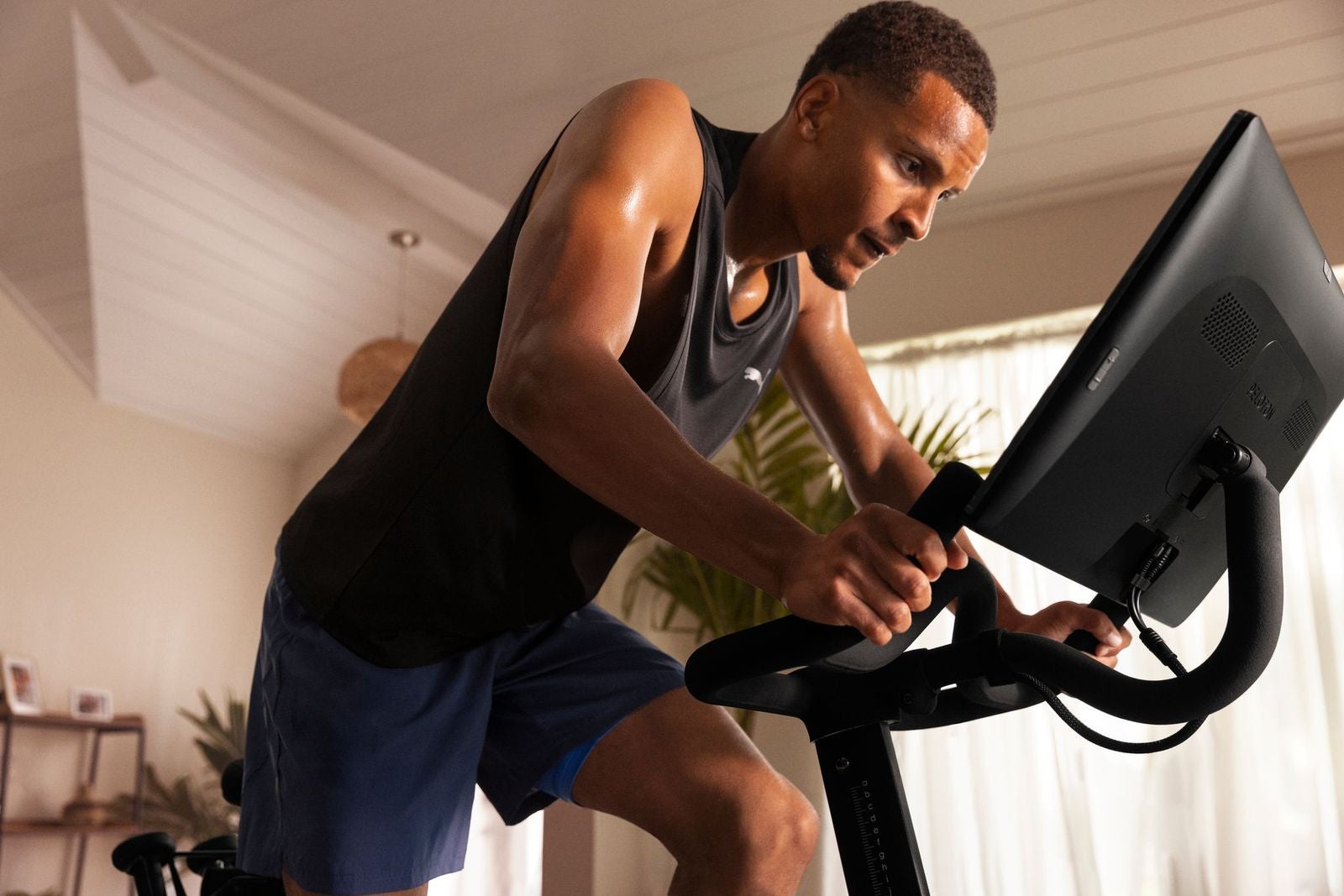‘I didn’t take Rio Olympics seriously’: Andre de Grasse determined to inherit Usain Bolt’s crown in Tokyo
Exclusive interview: The 26-year-old Canadian fell into sprinting and won an eye-catching bronze and silver in Rio aged only 21, but now he is ready to deliver on his natural talent with Olympic gold

Your support helps us to tell the story
From reproductive rights to climate change to Big Tech, The Independent is on the ground when the story is developing. Whether it's investigating the financials of Elon Musk's pro-Trump PAC or producing our latest documentary, 'The A Word', which shines a light on the American women fighting for reproductive rights, we know how important it is to parse out the facts from the messaging.
At such a critical moment in US history, we need reporters on the ground. Your donation allows us to keep sending journalists to speak to both sides of the story.
The Independent is trusted by Americans across the entire political spectrum. And unlike many other quality news outlets, we choose not to lock Americans out of our reporting and analysis with paywalls. We believe quality journalism should be available to everyone, paid for by those who can afford it.
Your support makes all the difference.A skinny 12-year-old boy is standing on the startline of a community track in Ontario, and he looks different to the rest. It’s partly because he’s the only one wearing a baggy vest over basketball shorts; the chunky trainers stand out a little too in a row of running spikes. Most of all, though, it’s that the rest of the field are crouched low in their blocks while he’s standing up with knees flexed and arms stiff like an emoji.
Andre de Grasse was not well prepared for his first race, having been invited to track by a friend he bumped into on the bus – he thought it might be fun, and he’d always been quick across a basketball court. But the boy with shorts flapping at his knees won in 10.9 seconds, and Canada’s 100m finalist at the 1984 Olympics, Tony Sharpe, happened to be watching.
“He told me I can be one of the fastest guys in the world,” De Grasse remembers. “Of course me being a kid, I thought this guy was crazy. But he took me aside and said ‘No, I’m serious. I’ve never seen anybody like you’. When a person is telling you that type of stuff you feel like, OK, well I have a gift and I don’t want to waste it.”
A few years later De Grasse is standing on another start line, this time in Rio de Janeiro. Aged 21 he is the youngest of the field and he still looks different to the rest – lean and slender in a row full of muscle – but his clothes fit now. As the camera pans across the Olympic 100m finalists, it lingers for a moment on the man in the next lane, Usain Bolt. “It’s pretty cool to line up against the fastest human being ever,” De Grasse laughs.
As Bolt stretched out his legs to secure a third successive title and sporting immortality, De Grasse came through behind Justin Gatlin to take bronze. De Grasse won silver in the 200m too, and perhaps the most remarkable thing about his performances under the twinkling lights of the Olympic Stadium in Rio is that he admits now he didn’t take his first Games seriously enough.
“I was like ‘it’s my first Olympics and whatever happens happens’. I didn’t take it as seriously as I probably should have, even though I came away with medals. I was young. I’d just got into the sport so I didn’t really put any high expectations on myself, I just went out there and had fun. This time around I’m a lot more focused a lot more determined.”
His carefree attitude was captured in one of the iconic images of Rio, when Bolt and De Grasse grinned at one another as they crossed the line in their 200m semi-final. In hindsight, of course, that mentality probably helped. Only later did he appreciate the magnitude of running next to Bolt, a man who drags you along in his shadow, and the rest of that star-studded cast.
“After the race was over I couldn’t believe it, like wow, I was literally in this field lined up against some of the fastest guys ever to run. Usain Bolt, Justin Gatlin, Yohan Blake... Those guys were all Olympic champions before, but in the race I had to just try and knock that out of my head.”
What comes across most from De Grasse’s appreciation for his rivals is his humility, a trait learnt from his family and a grounded religious upbringing – his mother, a former high-school sprinter growing up in Trinidad and Tobago, is particularly influential in his faith. Selflessness is part of his fabric. As a lost teenager still uncertain where life would take him, fixing cars for money and “hanging out with the wrong crowd”, he enrolled on a course to become a social worker.
“My brother helped me figure out what I wanted to do. He told me ‘If track doesn’t end up taking you to that next level you should study social work in college’. He was working at the community centre with all the kids, and I was like man, yeah, I definitely want to be helpful in that way, to be able to help kids. That’s just what I grew up with and what I had a passion for.”
The Olympic medals don’t seem to have changed those instincts, having set up a charity foundation partly funded by youth basketball tournaments which launched on the same track where he first raced. But then perhaps it’s easier to stay humble when you’re not even the most successful athlete in your own home. De Grasse is married to American hurdler Nia Ali, who became a world champion in 2019 after having two children, and they make what we can safely assume is the fastest couple in the world.

But he isn’t exactly the same person either. “I’m not a kid anymore. I have to take responsibility for my actions. I have to be more focused, more serious now.” It has been a journey since Rio off the track, getting married and starting a family, and on it too: a torn hamstring, twice, a year out of competition, doubts about whether he’d ever race again. Then a comeback, a change of coach, gradual progress. At the 2019 worlds he won silver and bronze once more.
They are familiar colours and the ultimate, a global title, still escapes him. Bolt is out of the picture but there remains serious competition, particularly from the favourite Trayvon Bromell, the American who finished last in that Rio final. “It’s hard with Usain or without him. Everyone’s capable of running fast and everyone’s personal best is around the same time, so it’s definitely going to be a challenge.”
Now, though, De Grasse is older and wiser, and more focused than ever. Just imagine what he might do if he takes this Olympics seriously.
Andre De Grasse is collaborating with Peloton on the Champions Collection. Available to existing Peloton Members and non-Members with a 30 day trial of the Peloton App.
Join our commenting forum
Join thought-provoking conversations, follow other Independent readers and see their replies
Comments